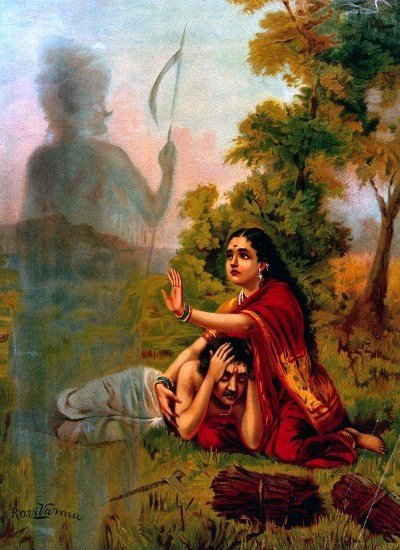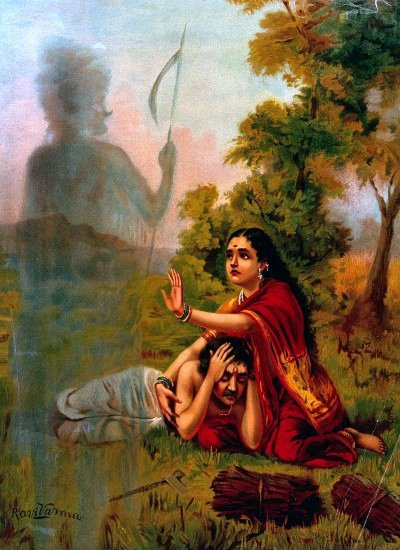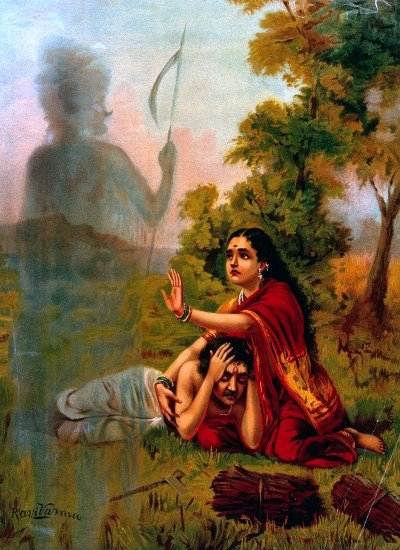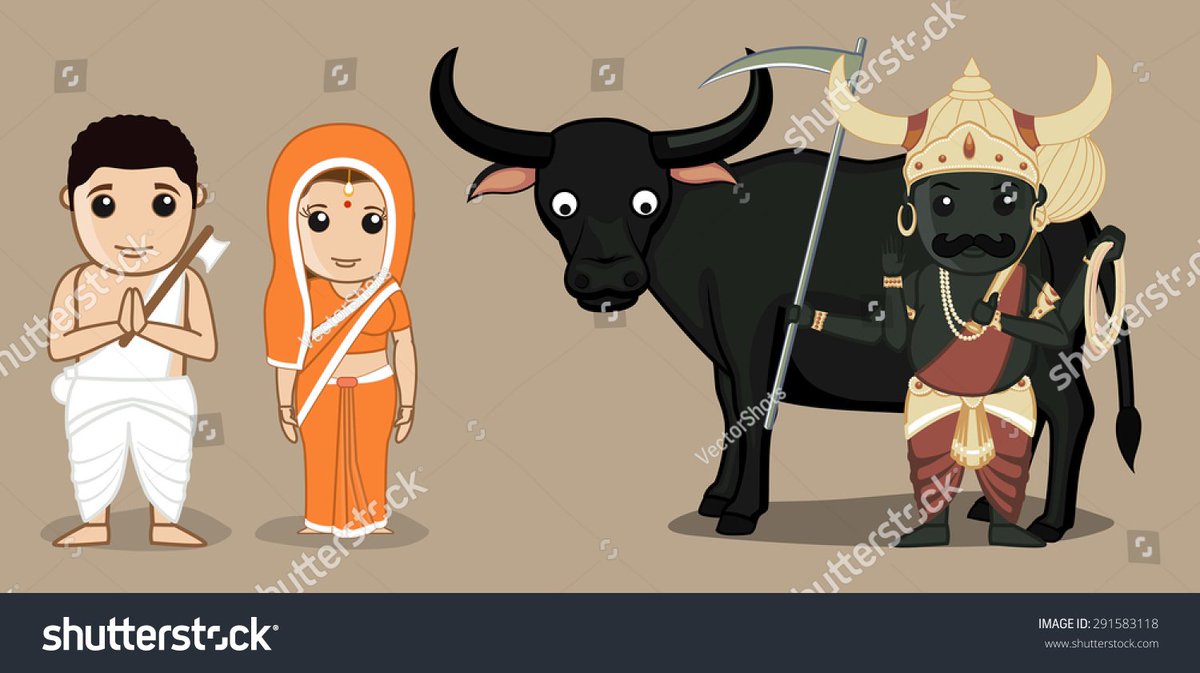Born to a king, Savitri sets out to find her match herself.
However, Savitri's father is not convinced.
He is destined to die a year from now. Both her father and ?Narada try to dissuade Savitri from marrying Satyavan.
Like a "slavish" woman, does Savitri listen? NO
She will face the consequences of her decision as they unravel.
In no time, the promised year, a year full of happiness for the couple, is over.
Death is around the corner.
Yep, the "slavish" woman, you'd imagine.
Satyavan falls holding his head when he is chopping wood. Savitri takes his head in her lap, and his life in her hands.
You'd expect "slavish" Savitri to give up at this point and go back home, right?
No. This is SAVITRI. She follows Yama. Over mountains, across rivers, she follows him.
He tries to talk her out of it.
In response, Savitri goes into the classical Sama, Dhana routine. She praises Yama for his virtues.
She praises him to the point that Yama now offers her a boon.
Success? No. Too easy.
Savitri is smart. She isn't going to let go of an offer. She asks that her father-in-law have sight and get back his kingdom.
It is GRANTED!
It is not over. Not yet. Yama continues towards Yamaloka.
Savitri, "Oh great Sire! I need to thank you for your generosity and your righteousness!"
More Sama Dhana.
Savitri now asks for a hundred children for her father.
Yama wonders about it for a moment. Then he says, "Granted".
He continues to Yamaloka. Savitri follows.
Before we get to what Savitri said, let's imagine how scary the scene must have looked.
Yama, by now, knows the routine. He offers her another boon EXCEPT the life of Satyavan.
Yama is at a complete loss. It is not an explicit demand for Satyavan's life, but well...
So, he makes a counter-offer, "Ok, not that one. Anything else...please...!"
Note here.
Yama has promised any other boon except the 100 children for Savitri and Satyavan, but has forgotten the older caveat of not returning Satyavan's life!
So, she says, "Ok. Forget about the 100 children. I understand it's difficult. Just give me back Satyavan!"
Yama blesses them both with a long life and departs.
He sees and welcomes them back home with great joy.
We'll look at Sati in a bit.
Now, this didn't find favor with Daksha, who didn't want his princess to go about the mountains with the ascetic.
All was well....until, Daksha decided to organise a grand Yagna.
Shiva chose not to attend the yagna, despite being entitled to his havir bhaaga (share of the offerings).
She would take the fight straight to Daksha, come what may.
Now, that wasn't enough to stop Sati. So, off she went, straight to the Daksha Yagna.
Overcome with rage, Sati cursed Daksha and his yagna, And then, she did something even more incredible.
Sati invoked her yogagni and burnt herself to ashes.
A "slavish" woman who threw away her body and life because it had come from a father whom she no longer respected.
They upheld Dharma, and did so in a manner of their choice. They refused to be prey to Tamas and abandon action.
End of thread. Thank you for your attention.
@threadreaderapp Please compile.









